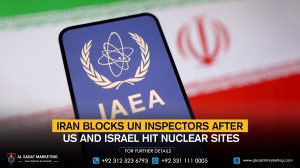The International Court of Arbitration’s extra award in the ongoing dispute over the Kishanganga and Ratle hydropower projects has been welcomed by Pakistan, which has described it as a confirmation of its long-standing position on the Indus Waters Treaty.
Through a supplemental award given on June 27, the international court reaffirmed its jurisdiction over the subject, the Foreign Office said in a statement on Monday. Despite India’s previous decision to halt its participation and put the treaty on hold, the court ruled that it still has complete jurisdiction to carry out its duties in a prompt, efficient, and equitable manner.
The Foreign Office official said, “This decision confirms Pakistan’s position that the Indus Waters Treaty is fully functional and effective.” “Under this treaty, India has no right to act unilaterally.”
India’s unilateral decision to suspend arbitration under the treaty, which regulates the two nuclear-armed neighbors’ sharing of rivers and water resources, prompted the court to issue its supplemental finding.
The spokesperson underlined that the supplemental award reinforces Pakistan’s commitment to peacefully resolving issues via legal and diplomatic means in addition to upholding the legitimacy of the court’s jurisdiction.
Pakistan demanded that New Delhi “immediately resume normal implementation of the Indus Waters Treaty” and “fully and honestly fulfill its commitments under the agreement,” urging India to adhere to international standards and its treaty duties.
The two nations have long been at odds over the Kishanganga and Ratle hydroelectric dams, which are both in Indian-held Kashmir. Pakistan has claimed that these projects are in violation of the 1960 Indus Waters Treaty, which governs the use of shared river waters and was mediated by the World Bank.
The two nations have long been at odds over the Kishanganga and Ratle hydroelectric dams, which are both in Indian-held Kashmir. Pakistan has claimed that these projects are in violation of the 1960 Indus Waters Treaty, which governs the use of shared river waters and was mediated by the World Bank.










